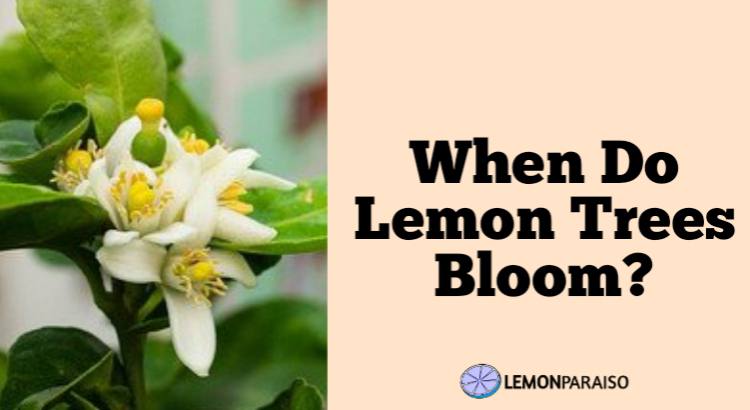Can Lemon Trees Grow In Washington?
Growing lemon trees in Washington State can be a rewarding experience for gardening enthusiasts, despite the challenges presented by the region’s cooler climate and wetter conditions. By selecting cold-hardy citrus varieties, such as the Improved Meyer lemon, and providing proper care, it is possible to cultivate healthy and fruitful lemon trees in this region.
Can Lemon Trees Grow In Washington?
Lemon trees can indeed grow in Washington, but it’s essential to select the appropriate variety and provide proper care for success. While the state’s climate is generally cooler and wetter than ideal for citrus trees, certain hardy varieties can adapt to the region’s conditions.
Grafted lemon trees, for example, have a higher likelihood of thriving in Washington’s climate. Providing these trees with adequate sunlight, warmth, and protection from frost is crucial for their growth.
Many gardeners in Washington choose to plant lemon trees in containers, which allows them to move the trees indoors during colder months. If you are determined and attentive, it is possible to grow lemon trees in Washington.
What Type Of Lemon Trees Can Grow In Washington State?
In Washington State, hardy citrus varieties such as the Improved Meyer lemon and Ponderosa lemon trees have a better chance of thriving. These types of lemon trees are more adaptable to cooler temperatures and can tolerate mild frost, making them suitable for Washington’s climate.
Gardeners should consider planting these trees in containers or using a greenhouse to provide the warmth and sunlight that lemon trees need. It is also essential to provide adequate drainage and protect the trees from strong winds, as these conditions can be detrimental to their growth.
What Is The Hardiness Zone For Growing Lemon Trees In Washington?
Washington State falls within USDA Hardiness Zones 4 through 9, with the western region generally having milder temperatures due to the maritime climate. Lemon trees typically grow best in Zones 9 through 11, but cold-hardy varieties such as the Improved Meyer lemon can be grown in Zones 8 and 9, which are found in parts of western and southeastern Washington.
To improve the chances of growing a healthy lemon tree, plant it in a container and move it indoors during colder months or when freezing temperatures are expected. Providing proper care, such as adequate sunlight, warmth, regular watering, fertilization, and pruning, is essential for growing lemon trees in Washington’s hardiness zones.
By selecting the right variety and employing appropriate cultivation techniques, lemon trees can be successfully grown in parts of Washington State.
How Do I Grow A Lemon Tree In Washington?
To grow a lemon tree in Washington, start by choosing a cold-hardy variety such as the Improved Meyer lemon. Plant the tree in a large container with well-draining soil, and place it in a sunny location that receives at least six hours of sunlight per day.
Water the tree regularly, but avoid overwatering to prevent root rot. Provide the tree with a balanced citrus fertilizer and prune it as needed to maintain its shape and health.
Move the tree indoors or to a protected area during colder months, and keep it away from drafts or fluctuating temperatures. With consistent care and attention, a lemon tree can thrive in Washington.
Can You Grow Lemon Trees Indoors In Washington?
Growing lemon trees indoors in Washington is a viable option, particularly during colder months or in regions with harsher winter conditions. Choose a dwarf or semi-dwarf lemon tree variety, such as the Improved Meyer lemon, which is more suited to indoor growing.
Place the tree in a container with well-draining soil and ensure it receives at least 6 to 8 hours of sunlight daily, either from a sunny window or supplemental grow lights. Regular watering, fertilization, and pruning are essential for maintaining the tree’s health. By creating an optimal indoor environment and providing consistent care, you can successfully grow lemon trees indoors in Washington.
How Much Sunlight Do Lemon Trees Need In Washington State?
Lemon trees need at least 6 to 8 hours of direct sunlight per day to thrive, even in Washington State. Position the tree in a location that receives ample sunlight, such as a south-facing window if it is grown indoors or a sunny spot in your garden if it is outdoors.
If adequate natural light is unavailable, consider using supplemental grow lights to provide the necessary light exposure. Ensuring that your lemon tree receives sufficient sunlight is crucial for its growth, fruit production, and overall health, regardless of the climate in Washington State.
How Cold Can Lemon Trees Tolerate In Washington State?
Lemon trees are sensitive to cold temperatures and can suffer damage when exposed to freezing conditions. Most lemon tree varieties can tolerate temperatures as low as 32°F (0°C) for short periods, but cold-hardy varieties like the Improved Meyer lemon can withstand temperatures down to 20°F (-6°C) for brief durations.
In Washington State, it is essential to protect lemon trees from frost and extreme cold by moving them indoors or providing insulation, such as frost cloth or blankets, during cold snaps. Taking appropriate measures to safeguard your lemon tree from cold temperatures will improve its chances of survival in Washington State.
What Are The Best Growing Conditions For Lemon Trees In Washington?
The best growing conditions for lemon trees in Washington include selecting a cold-hardy variety, providing adequate sunlight, ensuring proper drainage, and protecting the tree from frost and extreme cold. Planting the tree in a large container with well-draining soil allows for easy movement indoors during colder months.
Regular watering, fertilization, and pruning are also essential for maintaining the tree’s health. Providing a sheltered location to protect the tree from strong winds can also improve its chances of thriving. By creating an optimal environment and caring for the tree consistently, lemon trees can be grown successfully in Washington.



